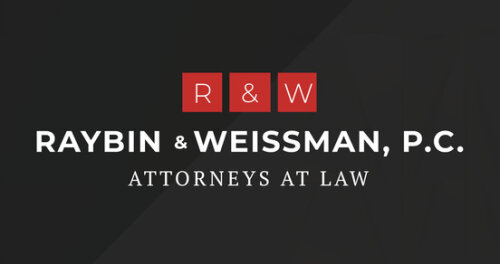Best Ethics and Professional Responsibility Lawyers in Arkansas
Share your needs with us, get contacted by law firms.
Free. Takes 2 min.
Or refine your search by selecting a city:
List of the best lawyers in Arkansas, United States
About Ethics and Professional Responsibility Law in Arkansas, United States
Ethics and Professional Responsibility law in Arkansas governs the standards of conduct for attorneys and certain other professionals within the state. These rules establish a code of conduct that attorneys must follow in order to uphold integrity, promote justice, and protect both the public and the legal profession. The Arkansas Rules of Professional Conduct, based largely upon the American Bar Association’s Model Rules, detail the obligations attorneys owe to clients, courts, third parties, and the public at large. These standards address issues such as conflicts of interest, confidentiality, fee arrangements, competency, and duties when dealing with unrepresented parties. Violation of these rules can result in disciplinary actions including reprimand, suspension, or even disbarment.
Why You May Need a Lawyer
There are a variety of situations where you may require a lawyer with expertise in Ethics and Professional Responsibility in Arkansas:
- If you are an attorney facing a grievance, investigation, or disciplinary proceeding by the Arkansas Supreme Court’s Office of Professional Conduct.
- If you are a client who suspects your attorney has acted unethically or breached his or her professional duties.
- If you are part of a law firm needing guidance on ethical compliance, office procedures, or preventative risk management.
- If you are an attorney seeking an ethics opinion regarding a difficult legal situation or potential conflict of interest.
- If you need help understanding or responding to a bar complaint.
- If you have concerns about confidentiality, client funds, or attorney-client privilege.
- If you are considering reporting suspected attorney misconduct and need to understand the process and possible outcomes.
Local Laws Overview
In Arkansas, attorney conduct is primarily governed by the Arkansas Rules of Professional Conduct, which are enforced by the Arkansas Supreme Court through the Committee on Professional Conduct and its Office of Professional Conduct. Key aspects include:
- Confidentiality: Attorneys must maintain client confidentiality with limited exceptions.
- Conflict of Interest: Attorneys must avoid representing clients if a significant risk of conflict with their own or another client's interests exists, unless appropriate waivers are obtained.
- Competent Representation: Lawyers must provide competent and diligent representation to clients.
- Fees: Fee arrangements must be reasonable and clearly communicated to clients.
- Trust Accounts: Client funds must be held in properly maintained trust accounts, separate from the attorney’s personal and business funds.
- Advertising and Solicitation: Legal advertising must not be false or misleading, and direct solicitation of clients is tightly regulated.
- Reporting Misconduct: Attorneys have a duty to report certain types of professional misconduct by their peers.
- Disciplinary Process: Alleged violations are investigated by the Office of Professional Conduct and resolved through various disciplinary measures as determined by the Committee and, in some cases, the Arkansas Supreme Court.
Frequently Asked Questions
What is the Arkansas Rules of Professional Conduct?
The Arkansas Rules of Professional Conduct are a set of rules adopted by the Arkansas Supreme Court that set forth the ethical standards and responsibilities for attorneys practicing in the state.
How do I file a complaint against an attorney in Arkansas?
You can file a complaint with the Office of Professional Conduct, which investigates allegations of misconduct by lawyers in Arkansas. Complaint forms and instructions are available from the Arkansas Judiciary or by contacting the Office of Professional Conduct directly.
What happens if an attorney is found to violate ethics rules?
If an attorney is found to have breached ethical rules, they may face disciplinary action, which can range from a private warning to public reprimand, suspension, or even disbarment, depending on the severity of the violation.
Can I sue my attorney for professional misconduct?
Ethics violations can result in professional discipline, but you may also be able to file a civil lawsuit if you suffered damages as a result of your attorney’s misconduct. It is advisable to speak with another attorney about your specific situation.
Are lawyers required to keep information about my case confidential?
Yes, attorneys have a duty of confidentiality to their clients, with certain exceptions such as preventing a crime or fraud. This confidentiality is a fundamental aspect of the attorney-client relationship.
What is a conflict of interest and how is it handled?
A conflict of interest occurs when an attorney’s representation of one client is materially limited by responsibilities to another client or their own interests. Arkansas rules require attorneys to avoid conflicts or obtain informed written consent from all affected clients.
Can I get a second opinion on whether my lawyer acted ethically?
Yes, you may consult another attorney specializing in professional responsibility or file a request for an informal ethics opinion from the Arkansas Office of Professional Conduct.
How are client funds supposed to be handled in Arkansas?
Client funds must be deposited in special trust accounts, kept separate from the lawyer’s business and personal accounts, and accounted for accurately.
Are all lawyers in Arkansas subject to the same ethics rules?
Yes, all attorneys licensed in Arkansas, including in-house counsel and government attorneys, are generally subject to the same Arkansas Rules of Professional Conduct, though some special rules may apply based on practice area.
What is the role of the Arkansas Committee on Professional Conduct?
The Committee on Professional Conduct oversees the enforcement of ethical standards among attorneys, reviews complaints, conducts hearings, and recommends or administers disciplinary action when necessary.
Additional Resources
If you are seeking more information or need to contact a regulatory authority regarding ethics and professional responsibility in Arkansas, the following resources can help:
- Arkansas Supreme Court - Office of Professional Conduct: Handles complaints, investigations, and discipline related to attorney misconduct.
- Arkansas Bar Association: Provides educational resources, a lawyer referral service, and information about member ethics requirements.
- Arkansas Judiciary: Offers public records of attorney discipline and ethics rules.
- Legal Aid of Arkansas: Offers guidance for individuals who believe they may have been harmed by unethical legal representation.
Next Steps
If you believe you have encountered an issue related to ethics or professional responsibility, consider the following steps:
- Document all relevant communications and keep copies of related documents.
- Reach out to the Arkansas Office of Professional Conduct if you wish to file a complaint or if you need procedures and forms.
- Consult with an attorney who specializes in legal ethics and professional responsibility for personalized guidance.
- Consider contacting the Arkansas Bar Association or a local legal aid organization if you need a referral or low-cost assistance.
- Familiarize yourself with the Arkansas Rules of Professional Conduct to better understand your rights and the standards attorneys must follow.
By taking these steps, you can better navigate your concerns and ensure that your legal matters are handled appropriately and according to Arkansas law.
Lawzana helps you find the best lawyers and law firms in Arkansas through a curated and pre-screened list of qualified legal professionals. Our platform offers rankings and detailed profiles of attorneys and law firms, allowing you to compare based on practice areas, including Ethics and Professional Responsibility, experience, and client feedback.
Each profile includes a description of the firm's areas of practice, client reviews, team members and partners, year of establishment, spoken languages, office locations, contact information, social media presence, and any published articles or resources. Most firms on our platform speak English and are experienced in both local and international legal matters.
Get a quote from top-rated law firms in Arkansas, United States — quickly, securely, and without unnecessary hassle.
Disclaimer:
The information provided on this page is for general informational purposes only and does not constitute legal advice. While we strive to ensure the accuracy and relevance of the content, legal information may change over time, and interpretations of the law can vary. You should always consult with a qualified legal professional for advice specific to your situation.
We disclaim all liability for actions taken or not taken based on the content of this page. If you believe any information is incorrect or outdated, please contact us, and we will review and update it where appropriate.
Browse ethics and professional responsibility law firms by city in Arkansas
Refine your search by selecting a city.
















